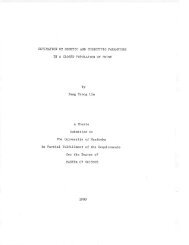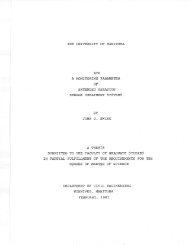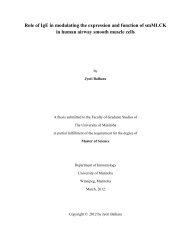Adverbial and Argument-Doubling Clauses in Cree - MSpace
Adverbial and Argument-Doubling Clauses in Cree - MSpace
Adverbial and Argument-Doubling Clauses in Cree - MSpace
Create successful ePaper yourself
Turn your PDF publications into a flip-book with our unique Google optimized e-Paper software.
cân kiskènimêw tânitê mêrîwa ê-itohtêmit.<br />
John-3 knows- TA-(3-3') where Mary-3' cj-go .AI-3'<br />
'John(prox) knows where Mary(obv) went. '<br />
cân kiskênimêw awêniwa ê-sipwêhtênit.<br />
John-3 knows . TA-(3-3') who-3' cj-1eave.AI-3'<br />
' John(prox) knows who(obv) is leav<strong>in</strong>g. '<br />
The faa that proximate shifts are not allowed between an A-doubl<strong>in</strong>g clause <strong>and</strong> the<br />
matrix verb shows us two th<strong>in</strong>gs:<br />
i) A-doubl<strong>in</strong>g clauses are different fiom adverbial clauses;<br />
ii) A-doubl<strong>in</strong>g clauses have a syntactic relationship to the matrix clause that<br />
requires the obviation features of the participants to rema<strong>in</strong> unchanged.<br />
This provides more support for an analysis where the A-doubl<strong>in</strong>g clause has a<br />
tighter syntactic l<strong>in</strong>k to the matnx verb than an adverbial clause. In chapter 5. we will<br />
exam<strong>in</strong>e how this l<strong>in</strong>kage occurs.<br />
4.4 Concliision<br />
Obviation, then, appears to be subject to another syntactic restriction. Aside from a limit<br />
of one proximate referent per clause, the obligatory obviative status for nouns possessed<br />
by a third person, <strong>and</strong> the ma<strong>in</strong>tenance of obviation status between relative clauses <strong>and</strong><br />
their heads, there is a restriction on the re-assignment of proximate status between clauses.<br />
Only certa<strong>in</strong> types of clausal relations permit a proximate shift. Specifically, they can only<br />
occur between an adverbial clause <strong>and</strong> the matrix clause. A-doubl<strong>in</strong>g clauses must<br />
ma<strong>in</strong>ta<strong>in</strong> the proximate reference assigned <strong>in</strong> the ma<strong>in</strong> clause verb.



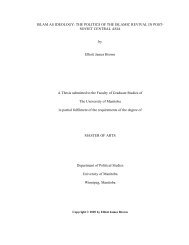
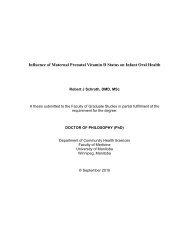
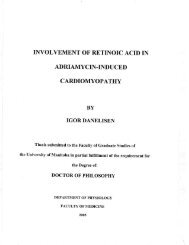
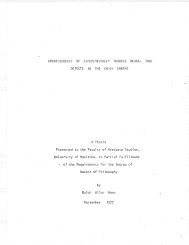
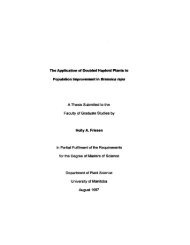
![an unusual bacterial isolate from in partial fulf]lment for the ... - MSpace](https://img.yumpu.com/21942008/1/190x245/an-unusual-bacterial-isolate-from-in-partial-fulflment-for-the-mspace.jpg?quality=85)
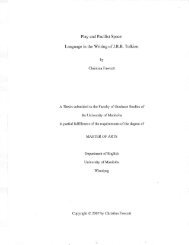
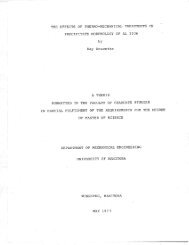
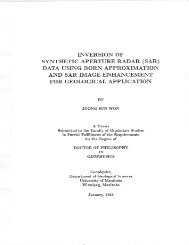
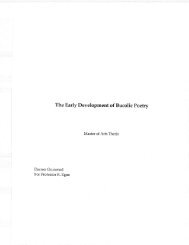
![in partial fulfil]ment of the - MSpace - University of Manitoba](https://img.yumpu.com/21941988/1/190x245/in-partial-fulfilment-of-the-mspace-university-of-manitoba.jpg?quality=85)
